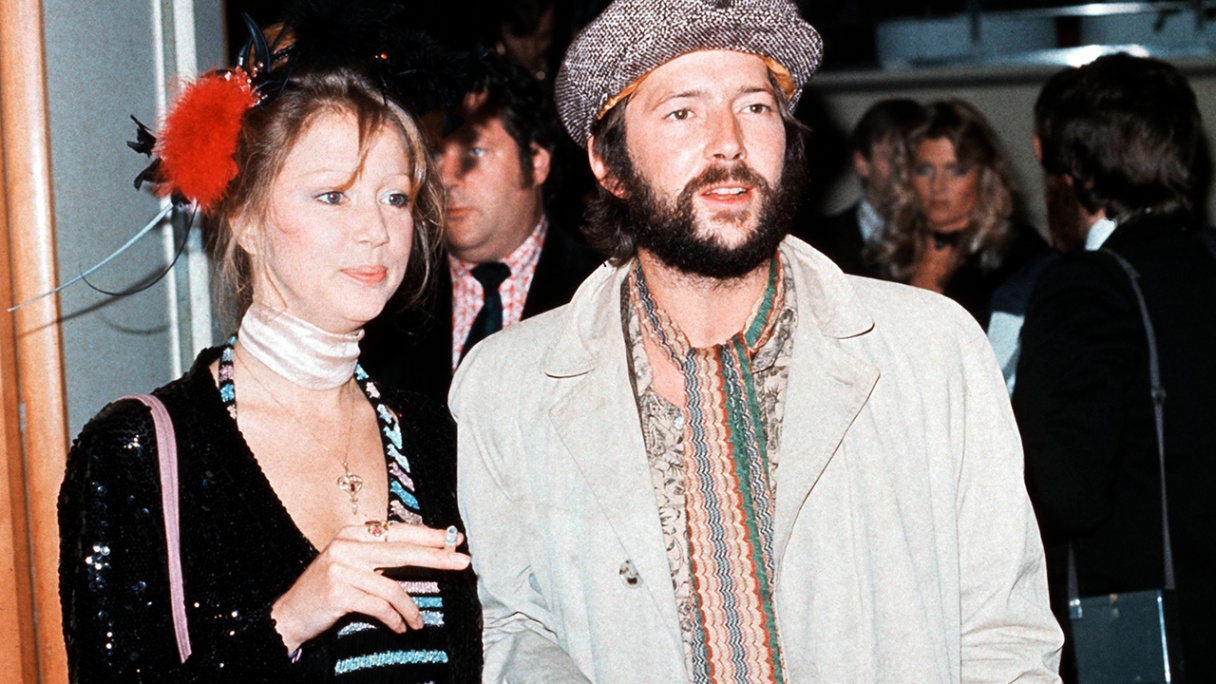It was 1976, and Eric Clapton sat in the living room with a guitar resting in his hands. His partner at the time, Pattie Boyd, was upstairs trying on dresses for a party at Paul McCartney’s house. In that simple, ordinary pause, Clapton began to play soft chords that would ultimately reshape his career.
When Boyd came downstairs, she turned to him and asked, “Do I look all right?” It was a question most lovers have heard countless times, but in that moment, it unlocked a song. Clapton’s reply was quiet, tender, and soon immortalized: “You look wonderful tonight.”
The composition that emerged was not filled with fireworks or lyrical complexity. There were no metaphors, no elaborate verses, no dramatic choruses meant to stun the listener. Instead, it was pure sincerity — a melody built on love’s simplest affirmation.

Released in 1977 on the album Slowhand, “Wonderful Tonight” quickly took on a life of its own. It did not storm the charts in a frenzy but instead settled into hearts, slowly weaving its way into weddings, anniversaries, and intimate dances across generations. The ballad became a universal love language, whispered in candlelit rooms and echoed at countless first dances.
For Clapton, however, the song’s meaning was not without pain. His relationship with Boyd was already under strain, burdened by jealousy, addiction, and the shadows of his long pursuit of her after her marriage to George Harrison. What began as a celebration of affection eventually aged into a bittersweet reminder of a love story that could not last.
Yet music has a way of transcending the personal history of its creator. “Wonderful Tonight” became larger than Clapton, larger than Boyd, larger than any single romance. It became a vessel into which millions of people poured their own memories, heartbreaks, and hopes.
Even decades later, when Clapton begins those unmistakable opening notes on stage, the effect is the same. Arenas grow quiet as if bracing for a collective confession, then sway as thousands of voices rise to sing along. For a few minutes, the song binds strangers together in a shared language of tenderness.
Pattie Boyd herself has spoken candidly about the song’s origins. She has admitted that she was surprised such a fleeting exchange became one of Clapton’s most enduring works. But perhaps that is the essence of great art — the transformation of ordinary life into something extraordinary.

Clapton’s career has been marked by extraordinary highs and devastating lows. From his days with Cream and Derek and the Dominos to his solo triumphs, he has navigated addiction, grief, and personal turmoil. Yet in the midst of those storms, songs like “Wonderful Tonight” served as gentle anchors, keeping alive the softer side of his artistry.
Critics have often noted that the song’s power lies in its universality. It is not a track weighed down by the specifics of time or place. Instead, it is timeless, allowing listeners to slip themselves into the moment — to imagine the dress, the glance, the reassurance, the warmth.
The cultural legacy of “Wonderful Tonight” is undeniable. It has been covered by countless artists, translated into multiple languages, and performed at venues ranging from small clubs to grand arenas. For some, it is the soundtrack to their wedding; for others, it is the bittersweet memory of a love long lost.
What is most remarkable is the way the song continues to resonate across generations. Younger audiences, born decades after its release, still find themselves moved by its sincerity. In a musical landscape often dominated by spectacle, “Wonderful Tonight” endures because it offers something timeless: honesty.
For Clapton, every performance of the song carries echoes of the past. Each note recalls not only the spark of inspiration but also the complicated love story with Boyd. Still, he plays it, perhaps knowing that its meaning has outgrown the private moment that birthed it.
In interviews, Boyd has reflected on her role as muse, acknowledging that while their love was imperfect, the song is a gift that transcends the flaws of their relationship. She has described it as a bittersweet legacy, a reminder of both tenderness and turmoil. Through her eyes, the song is not just about beauty but about fragility.
Today, “Wonderful Tonight” stands as one of Clapton’s most iconic contributions to music history. It is not his most complex composition, nor his most technically dazzling. But it is perhaps his most enduring, precisely because of its vulnerability.
A fleeting question. A tender reply. And with those few words, music history was made — proving once again that sometimes the simplest truths become the most eternal songs of all.
